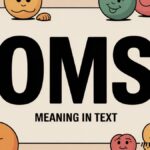The phrase “13 Powerful Alternatives to ‘How Could You’ (With Tone, Context & Examples)” refers to a curated set of emotionally charged expressions that replace the overused question “How could you?” Each alternative is carefully selected to suit various tones—whether you aim to express disbelief, convey disappointment, or call out hurtful behavior. These expressions are designed to fit specific emotional contexts, from betrayal in relationships to missteps in professional environments, offering clearer communication and more impact in both spoken and written exchanges.
Few phrases carry the emotional weight of “How could you,” but using it too often can dull its edge. Whether you’re crafting dialogue, confronting someone personally, or trying to maintain professionalism in tense situations, having a set of precise, powerful alternatives can elevate your language and sharpen your message. When your words match your emotions perfectly, people not only hear you—they feel you.
This guide breaks down thirteen bold, expressive phrases that strike the right chord in moments of shock, disappointment, or confusion. Each one includes tone insights, real-life examples, and context-driven applications that improve your ability to express disbelief or disappointment in more intentional, thoughtful ways. Whether you’re navigating conflict or building strong communication skills, these alternatives will help you express exactly what needs to be said.
Why You Need Alternatives to “How Could You”
Language is powerful, but repetition dulls its edge. If you constantly say “How could you,” it loses impact.
Here’s why switching it up matters:
- Tone control – Some phrases soften the blow. Others hit harder. You choose.
- Clarity – Precise language helps others understand your motivations or reasoning.
- Emotional intelligence – Shows you’re expressing more than just anger or shock.
Let’s explore each phrase with real-world context so you can choose the one that fits best.
Direct and Confrontational Phrases to Express Disbelief
Sometimes the moment demands confrontation. These phrases express shock while putting the other person on the spot.
Why would you do that?

This one punches directly at motivations or reasoning. It’s accusatory but not overly dramatic.
Example:
You knew it would hurt me. Why would you do that?
✔️ Good for both serious and casual settings
✔️ Works well in professional correspondence too
What were you thinking?
This cuts to the heart of judgment. It’s not just about what happened, but why.
- Tone: Confused or annoyed
- LSI Alternatives: convey doubt, show incredulity
Real Case:
In a workplace, someone deletes shared files without backup.
What were you thinking? That data took weeks to compile!
How could you let this happen?
You’re assigning blame—not for action, but for inaction.
- Great for leadership roles or team dynamics
- Emphasizes responsibility and control
| Scenario | Meaning |
|---|---|
| Missed deadline | Negligence or lack of planning |
| Ignored safety procedures | Serious lapse in judgment |
| Avoided hard conversation | Emotional unavailability |
What made you think this was okay?
This is pointed but insightful. It challenges someone’s ethical filter.
🧠 Ask this when you want a genuine explanation, not just a reaction.
Emotionally Charged Alternatives That Express Disappointment
When it’s personal—really personal—you need language that reflects that emotional weight.
I can’t believe you did this
This blends disbelief or disappointment beautifully. It stings because it’s personal.
Use it when:
- A close friend breaks a promise
- A partner acts out of character
Why it works:
It doesn’t just point fingers. It expresses hurt and shock.
How could you treat me like this?

This turns the focus onto your relationship. It centers behavior or decisions in context.
After everything we’ve been through… how could you treat me like this?
- 💔 Deeply emotional
- 🙋 Best used in personal narratives or romantic conflict
Did you even think about how this would affect me?
This phrase expresses concern and puts consequences front and center.
✔️ Highlights emotional fallout
✔️ Encourages reflection on actions or choices
🗣️ Crafting dialogue tip: This works beautifully in screenwriting and novels to show vulnerability.
Disappointment-Driven Alternatives That Hit Quietly But Hard
Not every confrontation needs fire. Sometimes a calm voice cuts deeper.
I expected better from you
This one’s devastating—and polite.
- Expresses disappointment without yelling
- Ideal in professional correspondence or personal conflict
Table: Tone Comparison
| Phrase | Tone | Common Usage |
|---|---|---|
| I expected better from you | Quiet, firm | Professional/personal |
| Why would you do that? | Direct | Informal, emotional |
| This really hurt me | Vulnerable | Personal, emotional |
This really hurt me
If you want to be honest and express regret without sounding accusatory, this is it.
Why it matters:
People often deflect when attacked. Vulnerability invites empathy.
I never thought you’d do something like this
This phrase signals betrayal of character. It’s more about who they were—not just what they did.
In fiction:
This is gold for crafting dialogue that shows change or decline in trust.
Dramatic, Rhetorical, and Emotionally Layered Phrases
For high-emotion moments, rhetorical questions let your feelings do the talking.
What kind of person does that?
This attacks the deed and the doer. Use sparingly—it’s a character judgment.
🧠 This is an advanced form of conveying disbelief through implication.
Who even are you right now?

This phrase implies total emotional distance. It’s often used when someone acts wildly out of character.
✔️ Great for intimate conversations or writing dialogue
✔️ Carries emotional weight without yelling
Were you even thinking at all?
This is biting sarcasm. Best used when logic goes out the window.
Example:
You left the dog outside all night in the cold? Were you even thinking at all?
How to Choose the Right Phrase for the Situation
Tone, relationship, and setting all shape the best phrase to use.
Here’s a quick-reference table:
| Intent | Best Phrase | Tone |
|---|---|---|
| Express shock | Why would you do that? | Direct, emotional |
| Express hurt | This really hurt me | Vulnerable |
| Express disappointment | I expected better from you | Calm, restrained |
| Assign responsibility | How could you let this happen? | Critical |
| Show moral disapproval | What made you think this was okay? | Reflective |
| Highlight betrayal | I never thought you’d do something like this | Heartbroken |
Case Study: Using These Phrases in Professional Settings
Situation:
An employee leaks confidential data during a product launch.
Instead of “How could you?”, a manager might say:
- “I expected better from you.” (expresses disappointment)
- “Did you consider how this would affect the entire team?” (emotional impact)
- “What made you think this was appropriate?” (logical challenge)
These phrases maintain professionalism while still conveying emotional weight.
Additional Resources
- The Psychology of Betrayal: Why People Hurt Those They Love
- Improving Emotional Communication Skills in the Workplace
Quick Summary Table
| Emotion | Phrase | Usage Context |
|---|---|---|
| Shock | What were you thinking? | Casual, personal |
| Hurt | This really hurt me | Romantic, personal |
| Confusion | Why would you do that? | General, informal |
| Accountability | How could you let this happen? | Workplace, team |
| Betrayal | I never thought you’d do this | Deep emotional conflict |
Want to upgrade your emotional vocabulary even more? Check out our guide on 25 Better Ways to Say “I’m Disappointed”.
Let me know if you’d like a downloadable infographic or email version of this post!
FAQs
Q1: Why should I avoid saying “How could you?” too often?
Using it too much can sound dramatic or vague. Clearer phrases better show your real emotions.
Q2: Can these alternatives be used in professional settings?
Yes, many are suitable for work emails or feedback, especially when expressing concern or disapproval.
Q3: Which alternative works best for expressing betrayal?
Try “What made you do that?” or “How could you be so thoughtless?” for personal hurt or betrayal.
Q4: Are these alternatives useful in writing and conversations?
Absolutely. They improve emotional clarity in both verbal communication and written dialogue.
Q5: Do tone and context matter when using these phrases?
Yes, tone and context shape how your message is received—using the right phrase avoids misunderstandings.
Conclusion
Words matter, especially when emotions run high. Using the right phrase can turn a heated moment into a clear and honest conversation. The 13 Powerful Alternatives to “How Could You” (With Tone, Context & Examples) help you speak with purpose. They give you tools to Powerful Alternatives express your feelings without sounding vague or aggressive. Each one fits a different tone—whether you’re hurt, shocked, or just need answers.
No more relying on one tired phrase. With these 13 Powerful Alternatives to “How Could You” (With Tone, Context & Examples), you’ll sound more thoughtful and in control. You’ll show people what you 13 Powerful Alternatives really mean—and why it matters. Use them in your personal life, in work emails, or during difficult talks. Let your words carry the right message, at the right time, with the right tone.

Sophie Bell is a creative writer at Mystic Saviour, specializing in Word Mechanics, Name Narratives, and Linguistic Twists. She brings a passion for language and storytelling, helping readers explore unique and engaging ways to enhance their writing.










